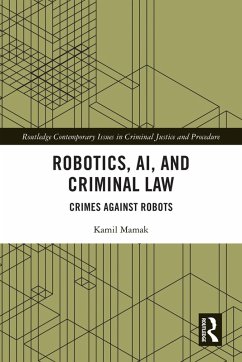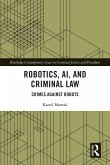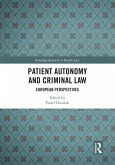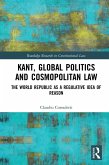Dieser Download kann aus rechtlichen Gründen nur mit Rechnungsadresse in A, B, BG, CY, CZ, D, DK, EW, E, FIN, F, GR, HR, H, IRL, I, LT, L, LR, M, NL, PL, P, R, S, SLO, SK ausgeliefert werden.
Sabine Gless, Professor of Criminal Law and Criminal Proceedings at the University of Basel (Switzerland) and co-author of If Robots Cause Harm Who is to Blame?, 19 NCLR 412-436 (2016)
"This ground-breaking book flips the script on robots and criminal law. Instead of examining unlawful actions done with robots, it investigates improper acts perpetrated against robots. In doing so, author Kamil Mamak develops an innovative method for protecting embodied, socially interactive technology that both challenges and revolutionizes existing property law."
David J. Gunkel, Professor at Northern Illinois University (USA) and author of Robot Rights
"A unique selling point of this excellent book is that Kamil Mamak draws both on an extensive knowledge of the philosophical literature on the ethics of human-robot interaction and an equally extensive knowledge of legal theory. Using Polish law as an illuminating case study, Mamak expertly investigates potential crimes against robots."
Sven Nyholm, Professor of the Ethics of Artificial Intelligence at the Ludwig Maximilian University of Munich (Germany), and author of Humans and Robots: Ethics, Agency, and Anthropomorphism and This is Technology Ethics: An Introduction.









